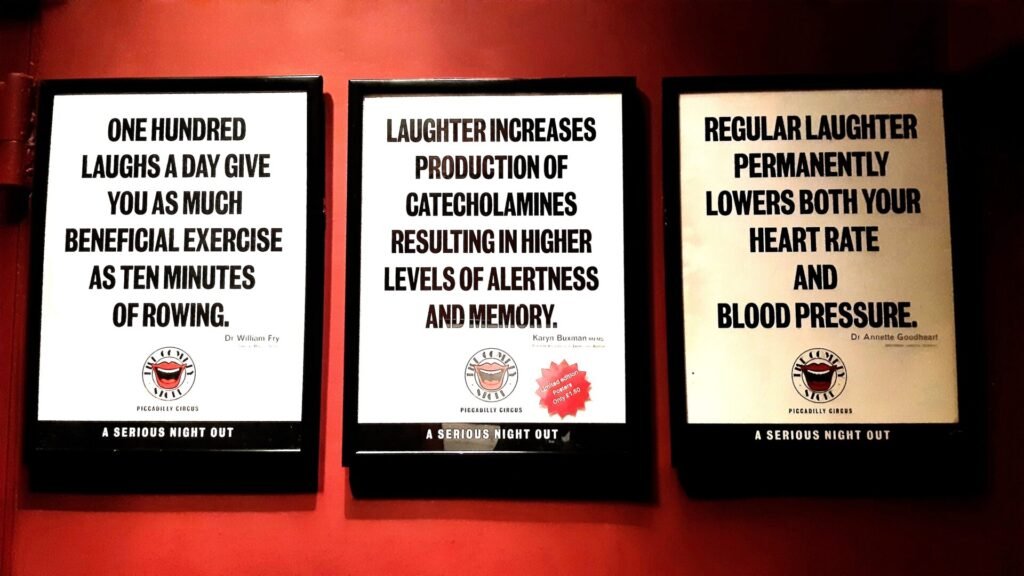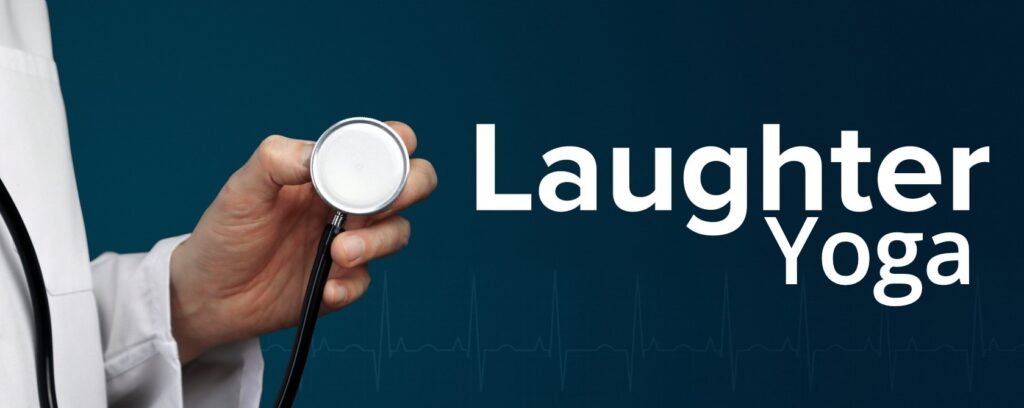The Healing Power of Laughter.



Occasionally, we practise Laughter Yoga in our class, which always goes down really well. It combines voluntary laughter with yogic breathing (pranayama). Dr. Madan Kataria, a medical doctor in Mumbai, India developed it in 1995 based on the idea that laughter has both major physiological and psychological benefits, regardless of whether it’s real or simulated. I use Dr Kataria’s techniques when we do laughter yoga in our class.
Laughter causes the diaphragm, chest and abdominal muscles to tighten and relax; stimulating the Vagus nerve, which is the main relaxation nerve in the body (in the parasympathetic nervous system), setting off a deep relaxation response, and triggers the release of endorphin and serotonin, the body’s natural feel-good (and health) hormones, reducing stress and anxiety, and improving mood. Studies suggest laughter can enhance the immune system through raising immunoglobulins (which are antibodies that protect us from harmful bacteria, viruses and parasites), and better cardiovascular functioning too, through permanently lowered blood pressure and resting heart rate, if both were high, over time.
On a recent Ted Talk, a top US neuroscientist placed laughter at the top of her list of ways to get better, ahead of diet and exercise, surprisingly. It can also promote quicker healing. Psychologically, laughter helps us to reframe a stressful event or situation in our lives, allowing us to see things from a different perspective, so we can then lessen our emotional reaction to it, and thus feel less-debilitated and more able to face challenges directly, and cope better generally.
The premise of Laughter Yoga is that the subconscious mind cannot differentiate between real and fake laughter. Participants start with simulated laughter, which usually turns genuine due to the contagious nature (and perceived silliness) of such laughter within a group setting. For Laughter Yoga duration-wise, about ten minutes is sufficient at any one time I believe, as too much could lead to hyperventilation and hyperoxia (too much oxygen in the blood), leading to dizziness and fainting. Thus, proper care is needed if you are new to it.
So, keep watching comedies and comedians, and having a good laugh or giggle with friends and family, wherever and whenever you can, as everyday situation humour is often the funniest – its health benefits are massive and really what the doctor ordered – and it costs nothing!
____________________
Sources and Research/Further Info on Laughter for Better Health:-
https://hms.harvard.edu/news/humor-laughter-those-aha-moments
https://neuroleadership.com/your-brain-at-work/neuroscience-laughter-at-work
https://www.forbes.com/sites/daviddisalvo/2017/06/05/six-science-based-reasons-why-laughter-is-the-best-medicine
https://www.jneurosci.org/content/37/25/6125
